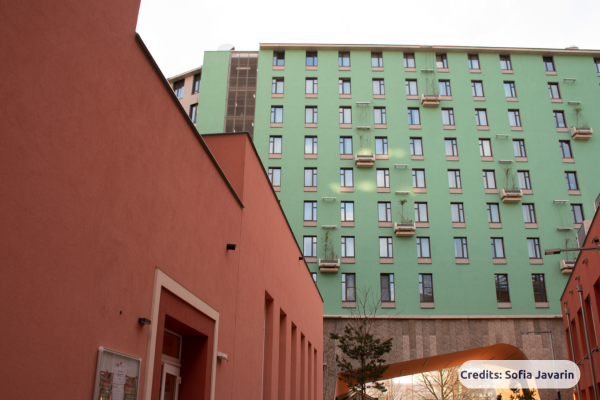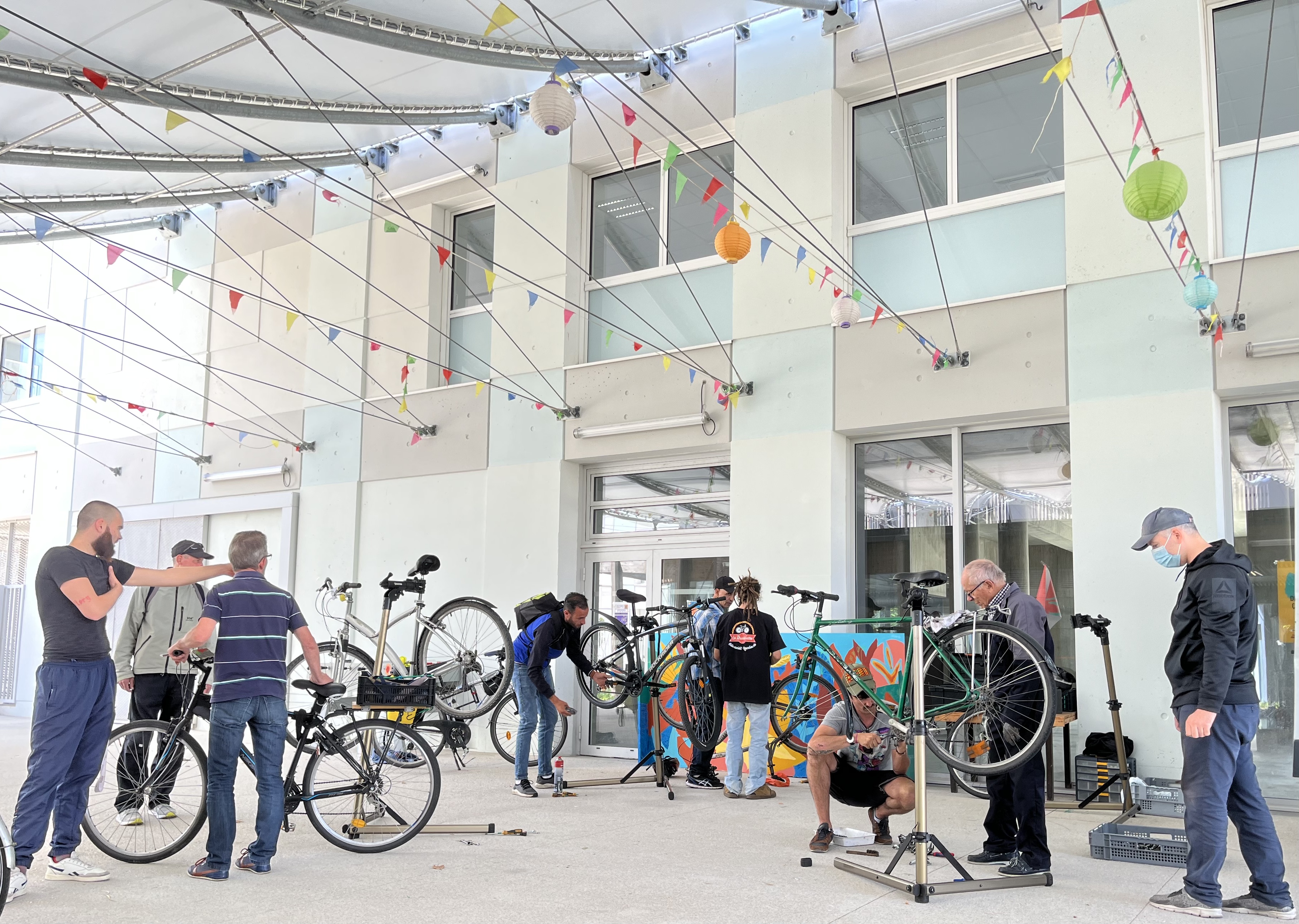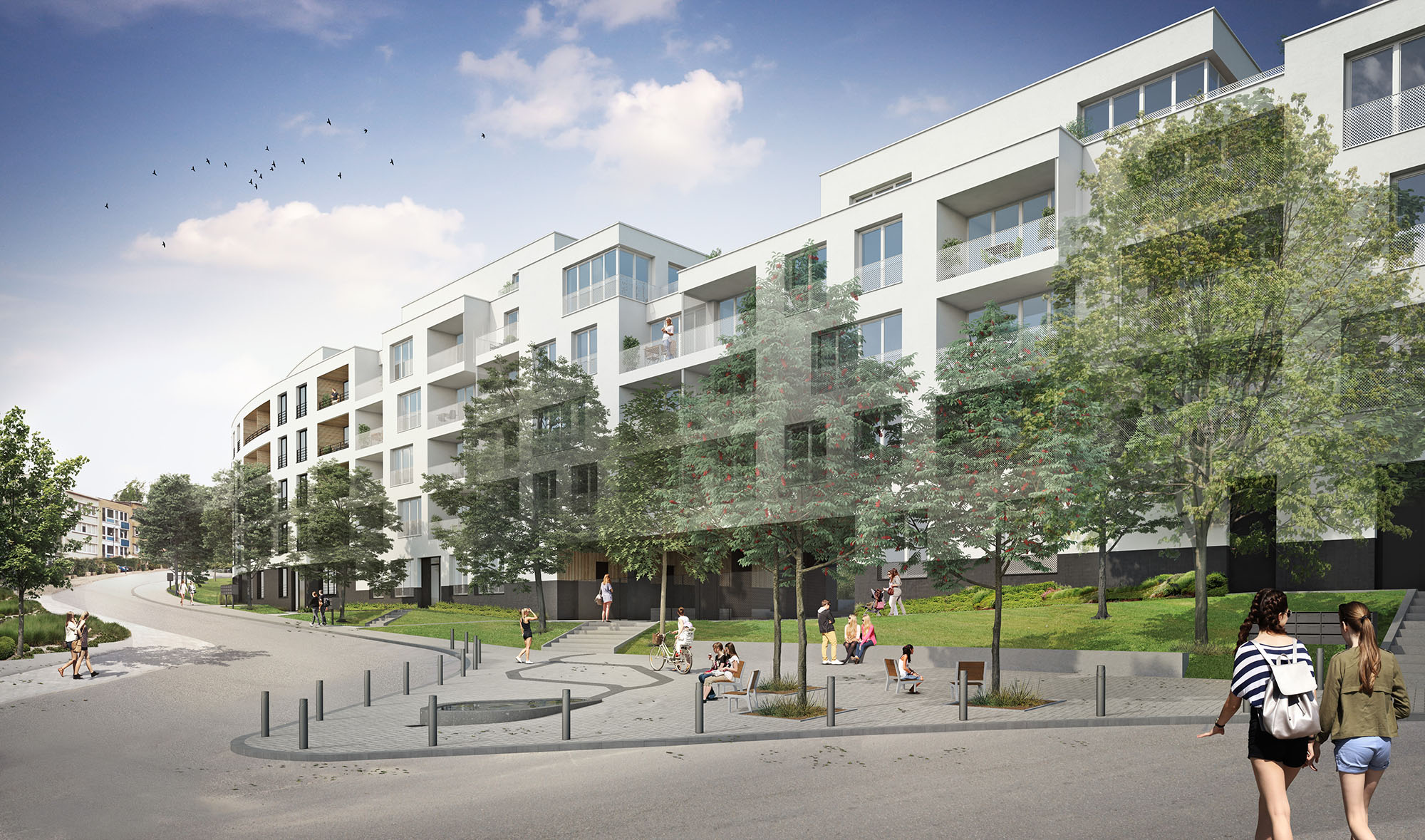
Right to Housing: innovative projects pioneering change in homelessness
The issue of housing continues to gain political attention every year. FEANTSEA (European Federation of National Organisations Working with the Homeless) unveils the 9th overview on housing exclusion in Europe revealing concerning trends. Homelessness, as one of the most serious consequences of the lack of affordable housing, underlines the urgency of the housing crisis. It is also a priority for the European Union, which now has its first ever EU Commissioner with direct responsibility for housing, signalling a call for a new housing paradigm that can better address these challenges across the EU.
More needs to be done, and national and local authorities have a key role to play, as highlighted in 2020 in the conclusions of the Urban Innovative Actions and Urbact capitalisation activity on the right to housing. Innovative approaches like ‘Housing First’, which prioritises housing as a basic right rather than a conditional reward, offer a glimpse of hope. Despite these efforts, homelessness continues to rise in many EU Member States, alongside the ongoing residualisation (decrease of the number of available social housing and a shift that focuses social housing on the most economically vulnerable groups) of social housing.
This article contributes to the ongoing discussion by emphasising the possibility to act and address this crisis, and more importantly, at the local scale. Although the issue of housing is a wicked problem, that requires coordinated efforts at national and local level, some EU cities are making a real difference, with the support of EU Cohesion policy, by advocating for continuous social housing policies.
UIA projects contributing to the fight against homelessness
Métropole du Grand Lyon - Home Silk Road
The Home Silk Road project in Lyon, France is an initiative that places housing and social inclusion at the centre of an urban renewal project, using the available spaces on the construction site to foster social and economic insertion of vulnerable groups. By transforming a historic industrial site, L’Autre Soie, the project aimed to counteract gentrification and to integrate vulnerable and socially excluded people in the community. During this transformation, 30 homeless families were given temporary housing on the site, while waiting for social housing. The building also became a hub for tailored support to residents and integration opportunities via cultural activities and social enterprises.

Credits: Noé Bravoux
One such social enterprise is BAKLAVAA, a Community Restaurant that operates under a unique legal framework. It allows people, often restricted from working legally in France due to their administrative status, to gain professional experience and thus, actively participate in the society. The enterprise contributed to the insertion of 13 trainees, the majority of whom were women, providing them with professional training in the kitchen. Beyond its role as an employer, BAKLAVAA was a vibrant hub in the neighbourhood, offering food while fostering a sense of community, belonging and inclusion.
Home Silk Road highlighted that transitional planning can create neighbourhoods that truly value social inclusion. The temporary housing had a significant positive impact, offering immediate relief and stability for the homeless families involved. Home Silk Road also highlighted the role of social and solidarity economy in fostering social inclusion, creating connections among residents, and supporting the integration of marginalised groups. Despite its challenges, the project demonstrated how urban renewal can be leveraged to address homelessness and social exclusion in meaningful ways.
Watch our video for an in-depth look at this project.
The 5 Bridges project in Nantes, France, is a comprehensive initiative designed to reintegrate individuals experiencing homelessness into society by offering a range of housing, healthcare, and employment services in a user-centred approach and centralised place. Located in a newly developed area on the island of Nantes, the project provides a dignified and welcoming environment where homeless people can access essential services all within a single building.

5 Bridges – Nantes, France
The facility features a diverse mix of housing options, including emergency shelters (accommodating 60 people during the day and 30 at night), transitional housing (40 apartments), and social housing (10 apartments). These housing solutions are complemented by various support services that aim to facilitate long-term stability and reintegration.
One of the project’s key strengths is its emphasis on community involvement. Homeless individuals, social workers, and residents collaborate in on-site laboratories to co-design and implement services tailored to the specific needs of the homeless population. The central hub also provides work opportunities in a restaurant (with 80 seats), a Solidarity market, and an urban farm on the roof (920m², including a greenhouse). 5Bridges is also part of a larger urban Living Lab including social and private housing units, start-up platform, student flats and recreation facilities that open to larger social groups.
The overarching goal of the 5 Bridges project is to help homeless individuals transition from emergency shelters to stable, long-term housing, all the while fostering a sense of community and inclusion. This holistic approach balances immediate support with the tools needed for lasting reintegration into society.
The CALICO project in Brussels, Belgium is an innovative housing initiative that prioritises community and affordability over real estate speculation. Launched in 2018, CALICO is co-managed by Community Land Trust Brussels (CLTB) and secures affordable housing in a multi-storey building shared by CLTB, a feminist association accompanying vulnerable women, and an NGO hosting a community birthing centre and end-of-life facility.

CALICO – Brussels, Belgium
Unlike typical Community Land Trusts focused only on homeownership, CALICO includes affordable rental units, with two apartments specifically for people experiencing homelessness under the Housing First model. While homelessness isn't the project's core focus, CALICO shows how housing initiatives can integrate elements to help address it, offering a sustainable and inclusive approach to urban housing.
Watch our video for an in-depth look at this project.
As we have seen in these 3 examples, these EU cities demonstrate that alternatives and solutions to eradicate homelessness are not only possible, but also already being implemented in various cities. Their EU funded projects are leading the way, proving that effective and innovative strategies exist and are impactful.
These city-level initiatives also show that EU Cohesion policy plays a crucial role in addressing Europe's housing crisis by promoting affordable, inclusive and sustainable housing solutions. The European Regional Development Fund (ERDF) supports the construction and renovation of social and affordable housing, ensuring that vulnerable groups have access to safe and secure homes. It also facilitates energy-efficient renovations, helping to reduce costs for residents and tackle fuel poverty. In line with the European Green Deal, the EU Cohesion policy remains a key instrument for driving long-term, systemic change and promoting greater housing equality across Europe.
In addition, in June 2021 and through the Lisbon Declaration, the European Commission launched the European Platform on Combatting Homelessness with the aims to eradicate homelessness by 2030 by promoting person-centred approaches, exchanges of best practices, and evidence-based strategies. The EPOCH platform highlights the European Commission's unprecedented commitment to this cause.
For further exploration, the Right2Housing platform, which features podcasts and videos, offer valuable resources and inspiration for those looking to make a difference.
